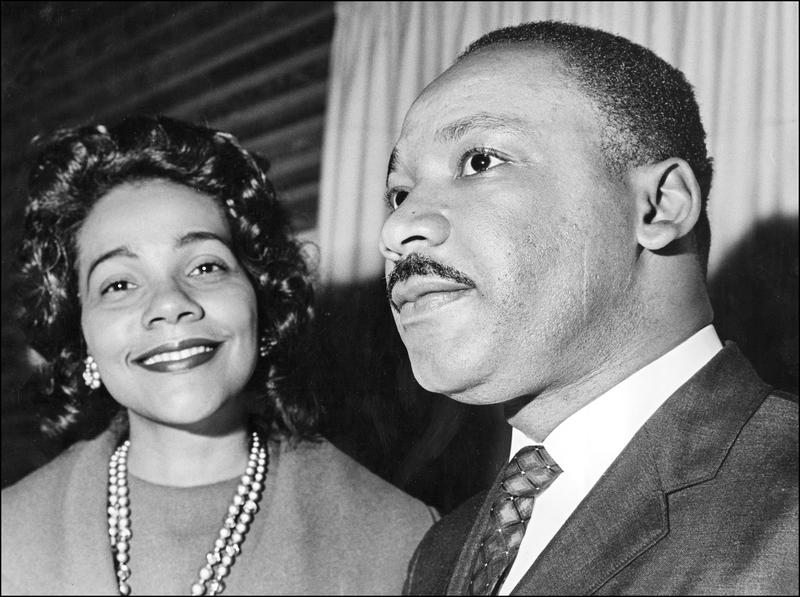 NYPR Archives & Preservation
NYPR Archives & Preservation
Coretta Scott King Reflects on Martin Luther King Jr., His Philosophy and the Montgomery Bus Boycott

In November, 1961, reporter Eleanor Fischer went to Atlanta, Georgia to interview Dr. Martin Luther King, Jr., his wife Coretta Scott King (1927-2006) and his father, Reverend Martin Luther King, Sr. for her CBC documentary portrait of Atlanta released the following year. The audio presented here is from Fischer's original raw field recording and has not previously been released in this form.
Mrs. King begins by talking about her family background, upbringing and education as well as how she met Dr. King when they were both in school in Boston. She spoke of their both wanting to return to the South to give back to the community although she would have preferred to spend more time in school. She explained that her husband felt he could serve humanity best through the ministry and that she was impressed by him. Initially, they shared a quiet year prior to the beginning of the Montgomery bus boycott, at which point she had just given birth to their first child.
Mrs. King describes in some detail the beginning of the boycott and her husband's role in it. She says the philosophy of non-violence evolved as things went along. Being a Christian minister, he was well versed in it, but it took a bit to get people to accept the theory and practice. She explains that they did so first out of their respect for the movement leadership, suggesting a deeper meaning came later. They came, she believes, to understand that civil disobedience is not passive and that it "takes more courage to stand up to the assault than to fight back."
Mrs. King says it's difficult to say why the movement's strategy worked in Montgomery and not in other places. But she speculates that there are periods in history when the time, situation and individuals on hand provide the right catalyst for change. She refers to boycott as a "new reawakening for whites in the South" that in the end brought about "respect for the Negro." Fischer asks her to reflect on the day her home was bombed and her husband's continued calls for a non-violent response.
____________________________________________
Special thanks to Elizabeth Starkey.